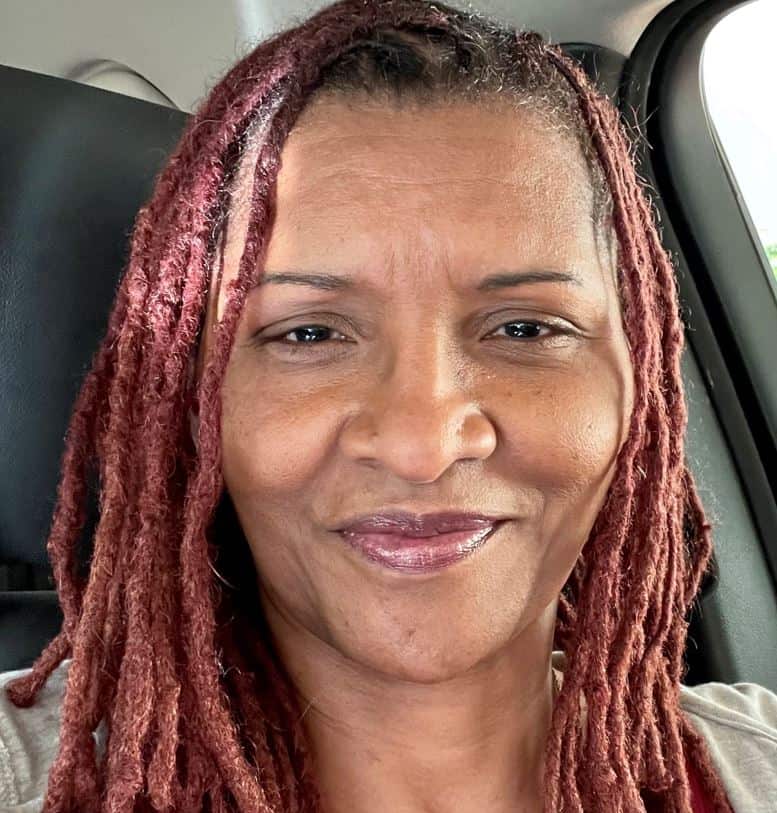
In 2015, a routine mammogram revealed four spots on Roselyn White’s right breast, and a biopsy confirmed she had stage 0 non-invasive breast cancer or DCIS. She underwent a double mastectomy with reconstruction. Because the cancer was stage 0, she did not need to undergo chemotherapy or radiation therapy. There is a history of breast and cervical cancer on her paternal side of the family, so she also underwent genetic testing, but does not carry the BRCA gene mutation.
While in treatment, Roselyn experienced feelings of isolation and loneliness, although she did have a family to help and is grateful for their support. She also struggled with how to find resources she needed. “I was distraught because I was losing everything I had worked for financially. I had to look for resources on my own and didn’t really know how to go about that.”
Once she recovered from her surgeries, Roselyn, whose background is in social work, was ready for a change in her career. When a friend saw a position for a patient navigator with Susan G. Komen, Roselyn applied. Patient navigators empower and guide patients to overcome barriers and ensure a seamless, high quality health journey.
“In hindsight, having a patient navigator while I was undergoing treatment would have been so beneficial for me,” Roselyn said. “It’s hard to find resources when you don’t know where to look.”
Now, Roselyn helps people navigate their breast cancer diagnosis. “That’s what I didn’t have when I was going through treatment,” Roselyn said. “I want to help someone else’s journey go a bit smoother. I’m very passionate about that. I think my experiences help me understand what someone else is going through. I know what it’s like to worry about finances and getting to appointments and the stress that comes with all.”
As a patient navigator, Roselyn sees herself as a buffer between the patient and the stressor, especially when working with Black women. “I want to help people overcome barriers to care they may be experiencing. It’s hard to navigate your health care when there are some doctors and nurses that don’t care,” she said.
“When I’m working with people in treatment, I want them to know they can trust me to help find answers and resources,” she said. “Cancer is the biggest blow, and I want to help cushion it.”
When determining the type of help people need, Roselyn asks people about their care team and the relationships formed with them. “Make sure your team is right for you. Ask questions. Don’t be afraid to speak up if you’re unclear or disagree with something,” she said. “A lot of times we don’t do that. We don’t ask questions, we don’t question anything, but we need to. We need to advocate for ourselves.”
In hindsight, Roselyn knows that if she had had a patient navigator by her side during her journey, she would have been aware of resources that could have helped her – financially, emotionally and medically. “I didn’t know where to go or who to ask at the time,” she said. “That’s why I’m passionate about helping others going through breast cancer.”
Learn more about Komen’s patient navigation services here. You can also listen to Roselyn tell her story here. For more information about Black breast health equity through our Stand for H.E.R. program, please visit our komen.org/standforher page.
Statements and opinions expressed are that of the individual and do not express the views or opinions of Susan G. Komen. This information is being provided for educational purposes only and is not to be construed as medical advice. Persons with breast cancer should consult their healthcare provider with specific questions or concerns about their treatment.



